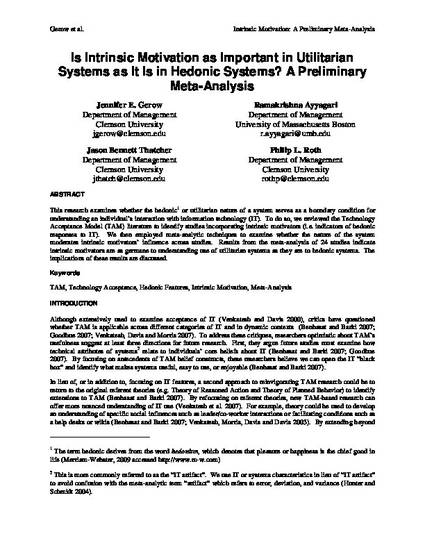
Article
Is Intrinsic Motivation as Important in Utilitarian Systems as It Is in Hedonic Systems? A Preliminary Meta-Analysis
AMCIS 2009 Proceedings
Publication Date
1-1-2009
Abstract
This research examines whether the hedonic1 or utilitarian nature of a system serves as a boundary condition for understanding an individual’s interaction with information technology (IT). To do so, we reviewed the Technology Acceptance Model (TAM) literature to identify studies incorporating intrinsic motivators (i.e. indicators of hedonic responses to IT). We then employed meta-analytic techniques to examine whether the nature of the system moderates intrinsic motivators’ influence across studies. Results from the meta-analysis of 24 studies indicate intrinsic motivators are as germane to understanding use of utilitarian systems as they are to hedonic systems. The implications of these results are discussed.
Citation Information
Jennifer E. Gerow, Ramakrishna Ayyagari, Jason Bennett Thatcher and Philip L. Roth. "Is Intrinsic Motivation as Important in Utilitarian Systems as It Is in Hedonic Systems? A Preliminary Meta-Analysis" (2009) Available at: http://works.bepress.com/jason_thatcher/20/
